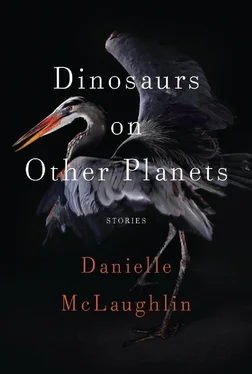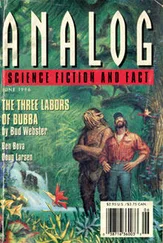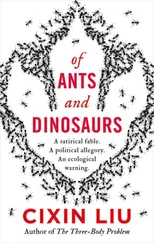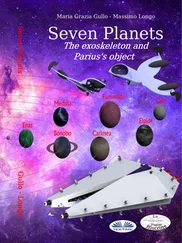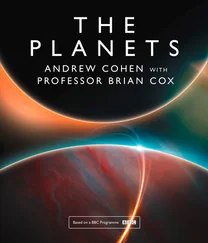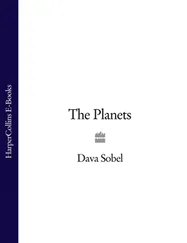“It’s okay,” she’d said. “This is fine.” She would like to know how exactly Bill passed his days, but this mystery was as unfathomable to her as the lives of the house’s previous inhabitants. It was not as if he spent much time on home maintenance. He’d had business cards printed advertising his services as a financial consultant, but thus far no clients had materialized. She’d taken a seat opposite Finn at the kitchen table and watched him eat his food the way he always did: peas first, one by one, then the potatoes, all the time his small brow furrowed with such intensity that she imagined the ducks resurrected inside his head, waddling crookedly, beating their wings against the walls.
—
SHE SLIPPED HER ARMS into her coat, took her briefcase from the hall, and went outside to where her car was parked in front of the house. “Bye, Finn,” she called, and raised her hand in a wave. He waved back, then returned to the task of untying one of the strings. Setting down her briefcase, she crossed the lawn, the heels of her shoes sinking into the damp ground, and stopped beside the net. For a moment, she considered what it might be like to climb onto it, to close her eyes, to sleep. Finn had managed to work the string loose, and now he was circling the tree with it again, but at a point higher up, round and round, preparing to refasten it. He stopped when it would go no farther, and began to tie a knot. “Here,” she said, “let me do that.”
“It has to be a pipe-hitch knot,” he said. “Can you do a pipe hitch?”
She shook her head. “I’d better leave you to it, then,” she said. Sheets of paper were spread out on the grass. Stooping to get a better look, she saw that they were covered in complex, intricate diagrams, the margins scribbled with words like “plague” and “apocalypse” and little hand-drawn pictures of birds, small, fat-bellied things with disproportionately long legs and large feet. Among the drawings was a copy of a magazine, a publication brought to the house from time to time by a preacher woman. She was one of the few people who braved the muddy lane to visit them or, more precisely, to visit Bill and Finn, because she always called in the daytime.
“Was the preacher here?” she said, picking up the magazine.
“You mean Molly?”
Since when was he on first-name terms with the preacher woman? “Is that what she’s called?”
“Yes.” He’d completed the knot and was tugging on the ends to see if it would hold.
“So when was Molly here?”
“Yesterday. But she couldn’t stay long. She had to go visit a woman who’s come all the way from Virginia to live up by the lake.” Satisfied with the knot, he turned to his mother. “Virginia is a girl’s name,” he said, “but it’s also a place in America. The first peanuts ever grown in America were grown in Virginia, but now the people of Virginia mostly grow tobacco, which is immoral and also causes plagues.”
“What’s Molly like?” she said, conscious that she should be on the road already. Delay would be paid for at an extortionate rate; ten minutes could cost her an hour if she hit the M50 at the wrong time.
Finn considered for a moment. “You know Sally, the horse trainer on Blue Mountain ?”
“ Blue Mountain ? Where’s that?”
“It’s a TV program.”
When she shook her head, he tried again. “You know Princess Karla from The Jupiter Gang ?”
What on earth were these programs that Bill was letting him watch? She would book a day off next month, she decided; even a half day would do. She would make an appointment with the school principal, she would ring a child psychologist, she would return the calls of that woman from the bank. There was no longer any reason to hope Bill might do these things.
Finn had his eyes screwed up, concentrating. “You know Angelina Jolie?” he said.
Goodness, she thought, this Evangelical was not what she had in mind. What she had in mind — an image she knew to be stereotypical, ridiculous — was a middle-aged matronly woman in homely dress, nineteenth-century Mormon meets Catholic nun, with gray hair in a bun and mannish lace-up shoes. “Yes,” she said. “I know Angelina Jolie. Is that who she’s like?”
“Sort of,” he said. “She’s got hair like her, and eyes like her, but she’s not as tall. And her skin is more tanned.”
It was nonsensical to be jealous of a woman who had made it her life’s purpose to decry pride and vanity and sins of the flesh, to decry most things, if the magazines she brought were anything to go by. She went to put the magazine in her briefcase, but the boy snatched it from her and, going a little distance away, settled himself cross-legged in the grass. She watched him as he read: such a serious child; serious, fervent, and, though it pained her to admit it, strange. She went over and stood beside him.
“We are living in the last of days,” he said, without looking up. “Soon, the armies of the Beast will come and there will be pestilence and lakes of fire.”
“Give me that,” she said, reaching for the magazine, but he was too quick for her. Jumping up, he took off to the far end of the garden, pages fluttering in his hand as he ran. She looked at her watch: There was no time to go after him. “I’ll see you this evening,” she called as she walked back across the grass to her car.
She drove down the avenue, swerving around the deepest of the potholes, slowing through the shallower ones. On her right, in contrast to the mossy stone wall, a crude post-and-rail fence separated their property from the wasteland next door, which had once formed part of the house’s extensive grounds. A developer, having no use for the house itself, had fenced it off and sold it, together with an acre of garden. When she and Bill had first viewed it, there had been a pair of tall wrought-iron gates at the end of the avenue, but by the time they moved in, the gates were gone, taken, she’d learned later, by a creditor of the builder. The wasteland was meant to be Phase 2 of a development of three-bed semis. Last winter, a storm had felled the advertising hoardings along the perimeter and now they lay half buried in the grass, their peeling fragments of swings and smiling lovers and flower beds like remnants of an ancient mosaic. Phase 1 was a field distant, a ghost estate already sliding into dereliction. She’d heard that a few of the houses were occupied, despite being without plumbing or electricity, and once, when she’d crossed the wasteland to peer through the fence, she’d seen a van parked outside one and a mound of garbage bags outside another.
Three weeks ago, during geography class, Finn had struck the boy who sat beside him full square on the mouth. “For no apparent reason,” according to the headmaster, though it later transpired that the boy had put his hand on Finn’s arm to stop him jigging it up and down. “That constituted assault,” Bill said. “Finn was acting in self-defense.”
“They’re nine-year-old boys,” she’d said. “Can we stop talking about them like they’re on indictment?” There had, apparently, been a lot of blood, a degree of panic, and a lost tooth, though it turned out that the tooth was a milk tooth and would have been lost anyway. “Hardly the point,” the headmaster had said when Bill offered this, and she couldn’t help thinking that the suspension might have been one week rather than two had she gone on her own.
—
AT MIDDAY SHE TOOK her lunch to the park. The day was cool, with barely any sun, and there were plenty of benches free. She chose one beneath a tree and unwrapped her sandwich. A van from the Parks Department pulled up beside the small pond and reversed onto the grass. A warden got out and, going around to the back of the van, unbolted the doors and let down the ramp. From where she sat, she could hear him making a series of cooing, coaxing noises. Eventually, a duck plodded out, dazedly, as if the van were a hard-shelled futuristic egg from which it had just hatched. It stood, bemused, on the ramp for a moment, and then suddenly there were more ducks behind it, pushing and jostling, and it was too late for it to turn back. A dozen of them, maybe more, descended onto the grass, a mix of lustrous greens and blues and mottled browns, and as the warden herded them toward the water, a child began to throw bread, striking one of them on the head. The warden shooed them onward, and they were wading in now, swimming, moving in tight little circles before broadening their orbit.
Читать дальше
